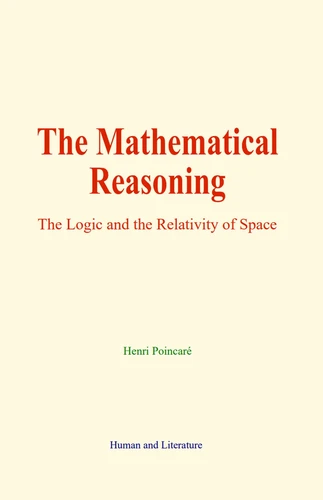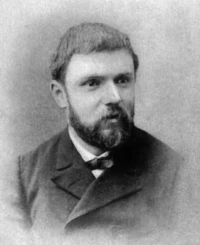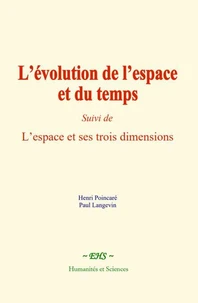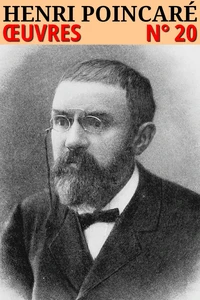The Mathematical Reasoning. The Logic and the Relativity of Space
Par :Formats :
Disponible dans votre compte client Decitre ou Furet du Nord dès validation de votre commande. Le format Multi-format est :
- Pour les liseuses autres que Vivlio, vous devez utiliser le logiciel Adobe Digital Edition. Non compatible avec la lecture sur les liseuses Kindle, Remarkable et Sony
 , qui est-ce ?
, qui est-ce ?Notre partenaire de plateforme de lecture numérique où vous retrouverez l'ensemble de vos ebooks gratuitement
Pour en savoir plus sur nos ebooks, consultez notre aide en ligne ici
- FormatMulti-format
- ISBN978-2-38111-646-4
- EAN9782381116464
- Date de parution03/09/2023
- Protection num.NC
- Infos supplémentairesMulti-format incluant ePub avec ...
- ÉditeurHuman and Literature Publishing
Résumé
The very possibility of mathematical science seems an insoluble contradiction. If this science is only deductive in appearance, from whence is derived that perfect rigour which is challenged by none? If, on the contrary, all the propositions which it enunciates may be derived in order by the rules of formal logic, how is it that mathematics is not reduced to a gigantic tautology? The syllogism can teach us nothing essentially new, and if everything must spring from the principle of identity, then everything should be capable of being reduced to that principle.
Are we then to admit that the enunciations of all the theorems with which so many volumes are filled, are only indirect ways of saying that A is A? No doubt we may refer back to axioms which are at the source of all these reasonings. If it is felt that they cannot be reduced to the principle of contradiction, if we decline to see in them any more than experimental facts which have no part or lot in mathematical necessity, there is still one resource left to us: we may class them among à priori synthetic views.
But this is no solution of the difficulty it is merely giving it a name; and even if the nature of the synthetic views had no longer for us any mystery, the contradiction would not have disappeared; it would have only been shirked. Syllogistic reasoning remains incapable of adding anything to the data that are given it; the data are reduced to axioms, and that is all we should find in the conclusions. No theorem can be new unless a new axiom intervenes in its demonstration; reasoning can only give us immediately evident truths borrowed from direct intuition; it would only be an intermediary parasite.
Should we not therefore have reason for asking if the syllogistic apparatus serves only to disguise what we have borrowed? The contradiction will strike us the more if we open any book on mathematics; on every page the author announces his intention of generalising some proposition already known. Does the mathematical method proceed from the particular to the general, and, if so, how can it be called deductive? Finally, if the science of number were merely analytical, or could be analytically derived from a few synthetic intuitions, it seems that a sufficiently powerful mind could with a single glance perceive all its truths; nay, one might even hope that someday a language would be invented simple enough for these truths to be made evident to any person of ordinary intelligence.
Are we then to admit that the enunciations of all the theorems with which so many volumes are filled, are only indirect ways of saying that A is A? No doubt we may refer back to axioms which are at the source of all these reasonings. If it is felt that they cannot be reduced to the principle of contradiction, if we decline to see in them any more than experimental facts which have no part or lot in mathematical necessity, there is still one resource left to us: we may class them among à priori synthetic views.
But this is no solution of the difficulty it is merely giving it a name; and even if the nature of the synthetic views had no longer for us any mystery, the contradiction would not have disappeared; it would have only been shirked. Syllogistic reasoning remains incapable of adding anything to the data that are given it; the data are reduced to axioms, and that is all we should find in the conclusions. No theorem can be new unless a new axiom intervenes in its demonstration; reasoning can only give us immediately evident truths borrowed from direct intuition; it would only be an intermediary parasite.
Should we not therefore have reason for asking if the syllogistic apparatus serves only to disguise what we have borrowed? The contradiction will strike us the more if we open any book on mathematics; on every page the author announces his intention of generalising some proposition already known. Does the mathematical method proceed from the particular to the general, and, if so, how can it be called deductive? Finally, if the science of number were merely analytical, or could be analytically derived from a few synthetic intuitions, it seems that a sufficiently powerful mind could with a single glance perceive all its truths; nay, one might even hope that someday a language would be invented simple enough for these truths to be made evident to any person of ordinary intelligence.
The very possibility of mathematical science seems an insoluble contradiction. If this science is only deductive in appearance, from whence is derived that perfect rigour which is challenged by none? If, on the contrary, all the propositions which it enunciates may be derived in order by the rules of formal logic, how is it that mathematics is not reduced to a gigantic tautology? The syllogism can teach us nothing essentially new, and if everything must spring from the principle of identity, then everything should be capable of being reduced to that principle.
Are we then to admit that the enunciations of all the theorems with which so many volumes are filled, are only indirect ways of saying that A is A? No doubt we may refer back to axioms which are at the source of all these reasonings. If it is felt that they cannot be reduced to the principle of contradiction, if we decline to see in them any more than experimental facts which have no part or lot in mathematical necessity, there is still one resource left to us: we may class them among à priori synthetic views.
But this is no solution of the difficulty it is merely giving it a name; and even if the nature of the synthetic views had no longer for us any mystery, the contradiction would not have disappeared; it would have only been shirked. Syllogistic reasoning remains incapable of adding anything to the data that are given it; the data are reduced to axioms, and that is all we should find in the conclusions. No theorem can be new unless a new axiom intervenes in its demonstration; reasoning can only give us immediately evident truths borrowed from direct intuition; it would only be an intermediary parasite.
Should we not therefore have reason for asking if the syllogistic apparatus serves only to disguise what we have borrowed? The contradiction will strike us the more if we open any book on mathematics; on every page the author announces his intention of generalising some proposition already known. Does the mathematical method proceed from the particular to the general, and, if so, how can it be called deductive? Finally, if the science of number were merely analytical, or could be analytically derived from a few synthetic intuitions, it seems that a sufficiently powerful mind could with a single glance perceive all its truths; nay, one might even hope that someday a language would be invented simple enough for these truths to be made evident to any person of ordinary intelligence.
Are we then to admit that the enunciations of all the theorems with which so many volumes are filled, are only indirect ways of saying that A is A? No doubt we may refer back to axioms which are at the source of all these reasonings. If it is felt that they cannot be reduced to the principle of contradiction, if we decline to see in them any more than experimental facts which have no part or lot in mathematical necessity, there is still one resource left to us: we may class them among à priori synthetic views.
But this is no solution of the difficulty it is merely giving it a name; and even if the nature of the synthetic views had no longer for us any mystery, the contradiction would not have disappeared; it would have only been shirked. Syllogistic reasoning remains incapable of adding anything to the data that are given it; the data are reduced to axioms, and that is all we should find in the conclusions. No theorem can be new unless a new axiom intervenes in its demonstration; reasoning can only give us immediately evident truths borrowed from direct intuition; it would only be an intermediary parasite.
Should we not therefore have reason for asking if the syllogistic apparatus serves only to disguise what we have borrowed? The contradiction will strike us the more if we open any book on mathematics; on every page the author announces his intention of generalising some proposition already known. Does the mathematical method proceed from the particular to the general, and, if so, how can it be called deductive? Finally, if the science of number were merely analytical, or could be analytically derived from a few synthetic intuitions, it seems that a sufficiently powerful mind could with a single glance perceive all its truths; nay, one might even hope that someday a language would be invented simple enough for these truths to be made evident to any person of ordinary intelligence.



















